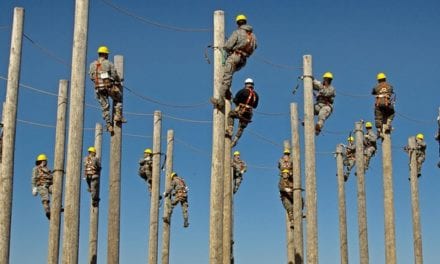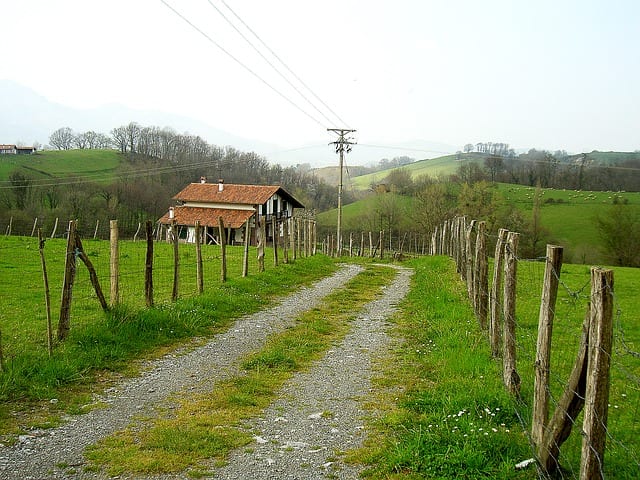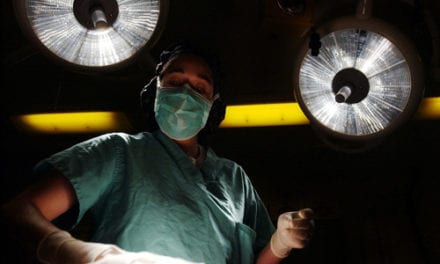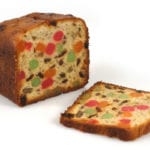Elwood lifted the withered, wood board from the tall weeds and propped it against the sagging fence. The black, uneven letters dripped down the jagged sign: “CLEAN FILL NEEDED.” He absently plucked a flattened dandelion from its corner and looked out at the trickling two-lane traffic.
Elwood coughed wetly into his faded handkerchief and looked around. The three-hundred-sixty-degree corn-and-soy-bean view was broken only by the highway and by he and Shelby’s weathered rambler with the sad fenced-in yard and the single tree that never cast a shadow further than the gravel driveway.
He studied the house. The edges of the roof shingles were striped with black, and there was dry, peeling paint on the frames of all the dirty-paned windows. He tried to remember the last time he’d painted the frames. Or the house. There was so much he needed to fix.
But first, he thought, looking back at the sign, the low spots in the yard that formed little lakes when it rained and made mowing that much more difficult. Shelby didn’t have the patience Elwood did for yard work. He wanted to make it easy on her.
He heard her before he saw her. The rusty Ford Bronco bounced and squeaked past him onto the dirt drive. She landed on the cracked wash pad at the side of the house, the chrome bumper nearly hitting the ground in one final jolt. Elwood coughed and added “back Bronco shocks” to the mental list ticking away insistently in his mind.
The Bronco door swung open violently and Shelby climbed out, tossing her cigarette butt on the pad, stomping it out with her foot, and then reaching back in the cab to grab two over-stuffed paper grocery bags which she balanced on each hip.
“I couldn’t find the brand you like,” she said, kicking the door shut with her foot and finishing it off with a hip check. “But they had this bran cereal on sale, so I got that.”
Elwood followed her into the house, the dark carpet and wood paneling a contrast to the bright outside. He squinted, sunspots blazing and then receding as he blinked.
Shelby was already in the kitchen, the grocery bags on the counter, one nearly empty. He didn’t know how she moved so fast. Their ten-year age difference never seemed as extreme five years ago.
“We can add blueberries to it if you don’t like it. Like they show on the box,” she said, her voice now muffled as she bent over to load the refrigerator with milk, eggs, and cheese.
“Blueberries?”
Her head popped up from below the counter and she looked at him—well, glared at him—for a split second before laughing. “They won’t kill you. They’re full of antioxidants.”
Antioxidants. A big word. Like the words the nurse used who called from the hospital last week.
Shelby smiled. “But we could see if you like it plain first.”
Plain bran cereal. Sure. He’d like that. Who wouldn’t? Anything for Shelby. Always.
“So, what’s with the sign?” she asked, folding the paper bags neatly and stacking them against the ever-growing pile next to the garbage can. He wasn’t sure what the purpose of saving them was, week after week. But Shelby yelled if she saw him pitching one in the trash when he helped put up groceries. “I didn’t think we had any projects planned?”
Elwood sank heavily into his recliner, that familiar cough tickling at his throat again. “Even out the yard,” he said trying too hard to suppress the rising cough. “Make it easier to mow.”
The last word disappeared in a fit of barks that made his eyes water. He pulled out his handkerchief and tried not to notice that the kitchen had gone silent.
“I’m going to go lay down,” Shelby said quietly, walking past him down the dark hall to their bedroom.
~~~OOO~~~
It started out as a cough. Shelby told him to go to the doctor in the only way Shelby knew how; she scheduled an appointment and drove him.
She gave Elwood the dignity of staying in the waiting room while they poked, pricked, and prodded him. The doctor listened to Elwood’s chest with a stethoscope and then listened to his back. He made him take breaths so deep they had to pause while Elwood hacked. The doctor felt either side of Elwood’s throat and it was something about the feel of the sticky latex gloves on his neck that made Elwood think he didn’t want to know what they had to say.
“Clean bill of health,” Elwood had said to Shelby as they headed home.
She’d put on her sunglasses and cursed when she missed the Bronco’s sticky second gear, and the car revved as they accelerated onto the freeway.
They hadn’t spoken about it since that day. The call came a week later, while Shelby was at work. There would be follow-up appointments. CT Scans. Thoracentesis.
Elwood would wake on the twin bed in the spare bedroom to the sound of the Bronco’s engine turning over, and then lay in bed a little longer than he admitted to later on when Shelby returned from work, worn out, her scrubs wrinkled. She pushed past him to get to the bathroom and wash off the stench of old folks and shit from the nursing home where she’d been a nursing assistant for thirty years.
He remembered a time when there was talk of Shelby going back to school and finishing her nursing degree, but those talks had been so quickly replaced by diapers, school supplies, college tuition, and then later by busted water heaters and transmission flushes.
Things seemed settled down now, with Will calling from Omaha once a week, comfortable in his job at the insurance company, and Elwood retired from the grain elevator.
In Elwood’s family retirement was a luxury. His dad had run his bulldozer and backhoe service up until his dying day. His mom still went out and mucked the pig stalls well into her eighties. Elwood had justified his retirement by telling himself he would use the time to work on the house, but the truth was, he just didn’t have the energy he once had for his job.
Shelby would be able to retire in a couple more years, and he wanted her to have a better place to come home to. Each cough made these projects more urgent, but the only thing he really worried about was lingering and having Shelby come home only to have to work on him.
~~~OOO~~~
The follow-up letter arrived when Elwood was out buying paint for the window frames. Maybe if he’d spent a little less time debating between Swirling Smoke and Rain Cloud White. Maybe if he’d not gotten into that argument with the cashier as to whether the Jayhawks had a chance at beating Tennessee State this year. Maybe he would have been there to intercept it.
But when he placed the bucket of Rain Cloud White on the kitchen counter and coughed into his handkerchief, he saw it on the counter. It was hardly noticeable that it was opened until he picked it up.
The room grew warm and all he could hear through the beating of his heart in his ears was the shower. He listened to the familiar sound, the way the water slapped against the plastic curtain and the wall at intervals as Shelby wetted, soaped, and rinsed her long hair.
He dabbed his wet brow and opened the refrigerator, unsure of what he was even looking for, as he listened to the water being turned off. A moment later, he looked over the counter to see Shelby, ghost white and wide-eyed, come into the living room, the clownishly tall towel wrapped around her hair, and hugging herself in her fluffy pink robe, looking just as beautiful as the day they met in line for the Tilt-A-Whirl at the County Fair.
He grabbed the untouched blueberries and set them on the counter, flipping open the plastic and taking a huge handful of them into his mouth. They tasted good, actually. He chewed thoughtfully, trying not to look at Shelby’s unmoving figure in his periphery.
Out the front window, a pickup truck, bed filled with thick, rich, black dirt, turned onto their drive and slowly ambled toward the house.
Elwood popped another blueberry in his mouth and motioned toward the window, smiling at Shelby.
“Looks like I’ve got some work to do,” he said as the truck slowed by the wash pad and a man wearing a trucker hat and jeans climbed out, looking around before making his way to the door.
Elwood went to greet him.






















